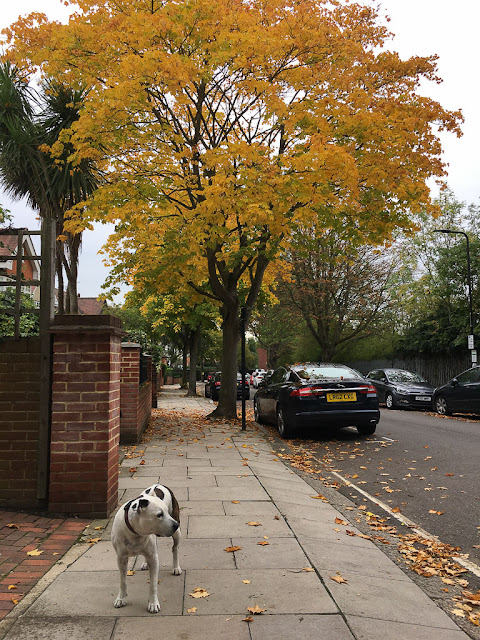Dave and I watched Netflix's fascinating documentary "The Social Dilemma" last night -- about the ways that social media not only monitor our online lives but also influence our lives offline, transforming politics, relationships and more. It discusses the ways social media make money by gathering data about us and feeding us advertising tailored to our interests. It also explores the idea that by helping individuals "gather" in virtual communities of like-minded people, those media increase polarization and extremism.
(I'm using social media in the plural sense, referring to many different platforms, rather than in the monolithic singular. Evil Google says it's correct either way.)
I'd call myself a casual user of social media --
very casual. I usually check Facebook once a day, and I'm on there maybe half an hour, if that much. I don't have accounts on Twitter, Pinterest, LinkedIn or Reddit, though I occasionally look at those sites when I want something specific. I use YouTube, but again, only when I want to find a specific video, or when I upload my own videos for blogging purposes -- I don't usually pay much attention to YouTube's recommendations for me.
When it comes to photography, I have a dormant Instagram account, but I mainly use Flickr -- and although Flickr allows commenting and other social media functions, I don't really use it that way anymore. I'm on Blogger more than anything else, and although I'm sure Blogger gathers data about me on Google's behalf, it's not showing me ads.
I've never been too troubled by the commercial angle of social media. I don't care that they harvest data about my interests or send me targeted advertising -- that seems harmless enough, and I rarely click on any of it anyway. (I have occasionally bought t-shirts recommended in Facebook ads because, let's face it, they were
perfect for me!) It's reasonable to expect Facebook and Google to want to make money, and it's not much different from being subjected to advertising on television or even in print, as all of us have been for decades -- except that the ads more closely hew to our desires. Which, it could even be argued, is a good thing.
But the second issue, polarization, is a
huge problem. The argument, basically, is that social media group people into like-minded virtual communities and feed them false or ever-more extreme content (which gets a lot more clicks than moderate content or real news) through recommendations. Thus, they gradually turn people with a conservative bent into ravening right-wingers, and turn liberals into ever-more-shocked-and-offended snowflakes. We see the evidence in our daily lives, our current politics, and even in people's reactions to the coronavirus pandemic -- all those who believe it's caused by 5G technology or that it's a hoax or that mask requirements are a totalitarian infringement on personal liberties.
I think the biggest problem arises when people rely on social media recommendations for their news. I don't mean to suggest that I'm playing this game perfectly, but I do
not get news from social media -- I read The New York Times and The Guardian and other reliable media sources, and I occasionally look at Fox News and even Breitbart to see what the "other side" is saying. (Admittedly, I seldom believe them, though!) In other words, I go to the source, and I know my sources and where they stand, which helps me comprehend that news.
I also don't de-friend people who think differently from me. I don't mean to condemn those who do -- I totally understand the impulse. I try to remember that behind those political views, however repugnant I may find them, there's a
person who at some level means something to me -- even if it's an old acquaintance from high school who I haven't seen in person in forty years. (!)
The movie made some recommendations for managing our lives on social media. Limiting screen time is an obvious option, as well as turning off notifications -- those little messages that ping our phones with supposedly urgent news or updates. (I've always kept all notifications turned off. In fact, I mostly use my phone as a phone -- or a camera -- and seldom use it for web browsing. I just can't deal with that tiny screen.)
Removing oneself from social media is an option too, but honestly, my Facebook account is too valuable to me -- I like being in touch with all my friends. I think deletion makes sense for social platforms we feel we can do without. For example, last night I deleted my TikTok account, which I created several months ago out of curiosity (after reading about TikTok in The New Yorker) and almost never used. I won't miss silly videos of teenagers lip-synching songs I don't know.
Anyway, it's a very interesting movie, and definitely food for thought!
(Photo: Autumn color in West Hampstead.)




















































